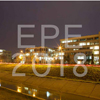The first high education engineering structure in Romanian language was established in the autumn of 1813, when engineer Gheorghe Asachi laid the foundations of a class of topometry and cadastre engineers.
In November 1910, at the Faculty of Sciences of Iasi University (founded in 1860), the Superior Electricity School was established, the first of its kind in Romania. The head of this institution was the scholar Dragomir Hurmuzescu. Not long after its establishment, in 1912, the school turns into the Institute of Electrical Engineering, the first institution for the training of electric engineers in Romania. An important step in the development of electrical engineering education is the establishment in 1938 of the Faculty of Electrical Engineering, within the new organized "Gh. Asachi "Polytechnic School in Iasi.
In that year 1938, the first doctoral thesis in Electrical Engineering was public defended, under the scientific coordination of Prof. Ştefan Procopiu, scholar proposed for the Nobel prize.
Since 1957 the specialization of Electromechanical Engineering has been created, transformed in 1974 in the specialty of Electrical Engineering. Another important moment is the establishment in 1960 of the Electric Power specialization. In its current structure, besides the fields of Electrical Engineering and Energy Engineering, since 1995, the faculty has formed specialists in Economic Engineering (management) and in Industrial Informatics, specialization established in 2003.
Presently, there are 16 professors having the Habilitation for supervising PhDs programs in Electrical and Power Engineering, while the number of PhD students in the internship is more than 70.
The research activity is carried out mainly in the three accredited research centers, being funded by both governmental and national or European programs, but also by contracts supported by the economic environment.
Essentially, we invite you in a friendly environment of the highest scientific probity, supporting the successful completion of doctoral programs in the domain of electrical and power engineering.
In hoc signo vinces!



